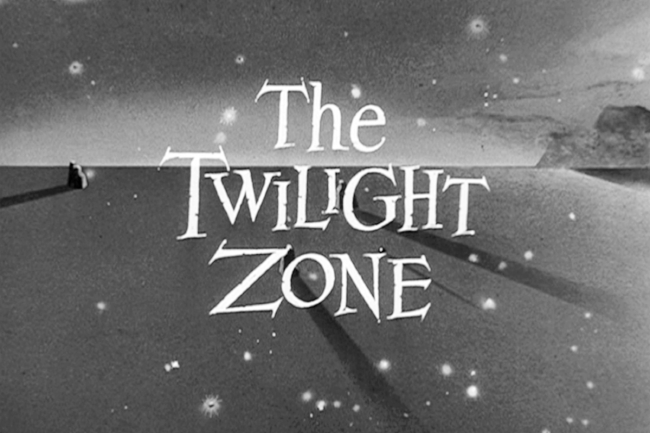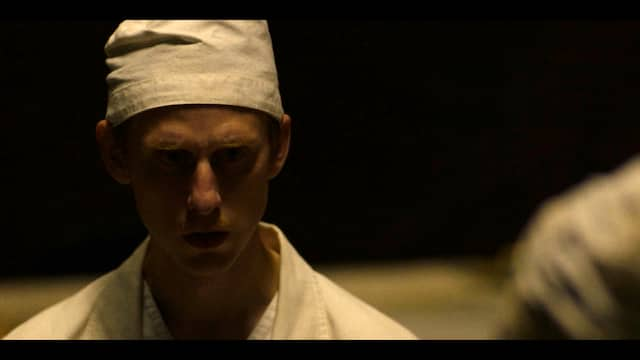
The Twilight Zone – Season 1, Episode 3 – Mr. Denton on Doomsday – Review
“Mr. Denton on Doomsday”: A Tale of Redemption in The Twilight Zone
“Mr. Denton on Doomsday,” an early episode from the first season of the iconic TV series “The Twilight Zone,” is a compelling narrative that explores themes of redemption, fate, and the possibility of second chances. Directed by Allen Reisner and written by the series creator Rod Serling, this episode, first aired in 1959, stands out as a testament to the timeless quality of the show’s storytelling.
Narrative and Thematic Exploration
The episode tells the story of Al Denton, once a feared gunslinger, now a down-and-out drunk, tormented by the townsfolk of the small Western town he inhabits. Denton’s life takes a mysterious turn when he inexplicably regains his legendary shooting prowess, thanks to a magical potion provided by the enigmatic peddler, Henry J. Fate. However, this gift soon draws the attention of a young gunfighter looking to make a name for himself, leading to an inevitable showdown that twists Denton’s newfound fortune in unexpected ways.
At its core, “Mr. Denton on Doomsday” is a meditation on the concept of redemption and the cyclical nature of violence. The episode skillfully uses the Western genre’s conventions to delve into deeper philosophical questions, a hallmark of Serling’s writing. It questions whether a man can escape his past and whether fate is a predetermined path or a road shaped by one’s actions.

Behind the Scenes: Crafting the Twilight Zone’s Western Venture
Producing “Mr. Denton on Doomsday” presented unique challenges and opportunities. The episode was one of the few “Twilight Zone” stories set in the Old West, requiring authentic period costumes, props, and set designs to create a convincing 19th-century town. This setting was pivotal in establishing the episode’s tone and atmosphere, transporting the viewer to a time synonymous with lawlessness and moral ambiguity.
Director Allen Reisner, known for his work in television, brought a cinematic quality to the episode. His use of close-ups, especially in the scene of the final showdown, added intensity and a personal touch to the story, highlighting the characters’ emotions and inner turmoil.
Performances: Bringing Depth to Serling’s Characters
The casting of “Mr. Denton on Doomsday” played a significant role in bringing the narrative to life. Dan Duryea, as Al Denton, delivered a poignant performance, capturing the character’s despair and his longing for redemption. Duryea’s portrayal evokes sympathy and root for Denton’s salvation, making the episode’s climax all the more impactful.
The character of Henry J. Fate, portrayed by Malcolm Atterbury, adds a layer of mystery and serves as a catalyst for Denton’s transformation. His subtle yet powerful presence raises questions about the nature of fate and chance in shaping one’s destiny.
Cinematography and Music: Complementing the Narrative
The cinematography in “Mr. Denton on Doomsday” effectively complements the story’s themes. The dusty streets of the Western town, the dimly lit saloon scenes, and the starkness of the outdoor showdown create a visual language that enhances the narrative’s mood and tone.
The score, composed by Jerry Goldsmith, underscores the episode’s dramatic and emotional beats. Goldsmith’s use of traditional Western motifs juxtaposed with more somber, reflective pieces contributes to the story’s depth and its examination of the human condition.
Cultural Impact and Legacy
“Mr. Denton on Doomsday” stands as a prime example of “The Twilight Zone’s” ability to transcend genre boundaries to tell stories rich in meaning and humanism. The episode’s exploration of redemption and the possibility of changing one’s fate resonates with universal themes that are as relevant today as they were during the show’s original airing.
Final Thoughts
In “Mr. Denton on Doomsday,” “The Twilight Zone” offers more than just a speculative narrative; it presents a poignant story about human frailty, the possibility of redemption, and the choices that define us. This episode, with its well-crafted narrative, strong performances, and thoughtful thematic exploration, remains a standout in the series and a testament to Rod Serling’s genius as a storyteller.




